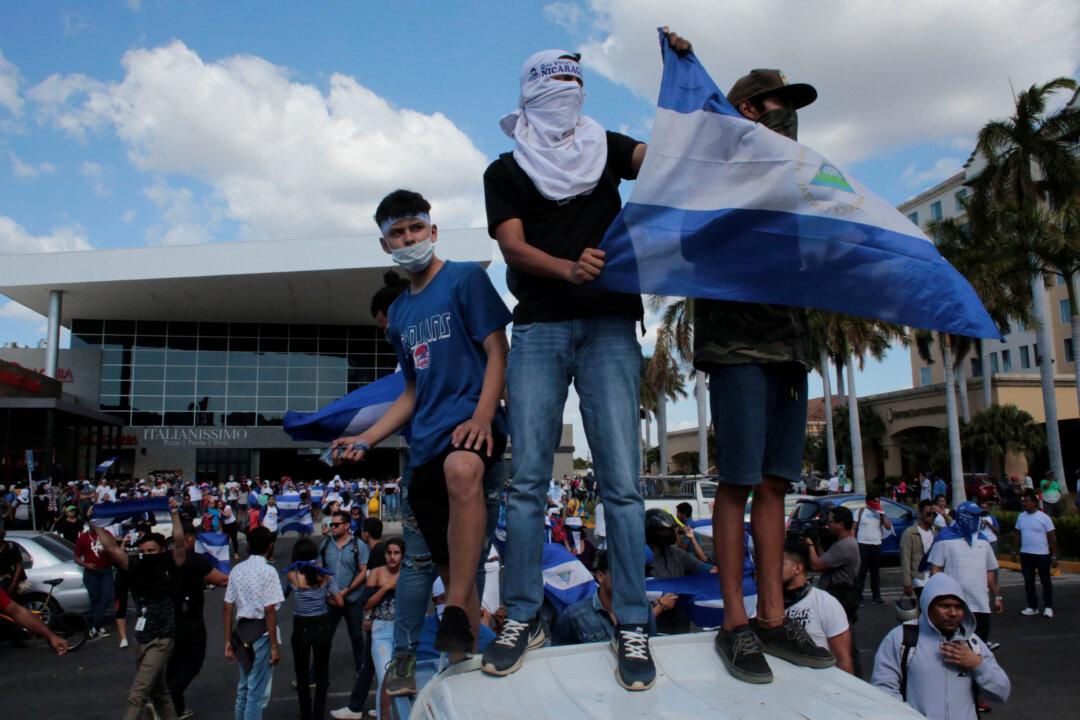Protesters targeting Nicaraguan President Daniel Ortega took to the streets on March 16, demanding the release of all political prisoners and turning up the heat on the political crisis that has consumed the country since last year.
Protest organizers and witnesses told Reuters that some protesters who gathered at various points in Managua, the capital, were beaten by police. Since November, bans on street protests have been more strictly enforced. Videos circulating on social media from the protests also showed police hitting civilians.





